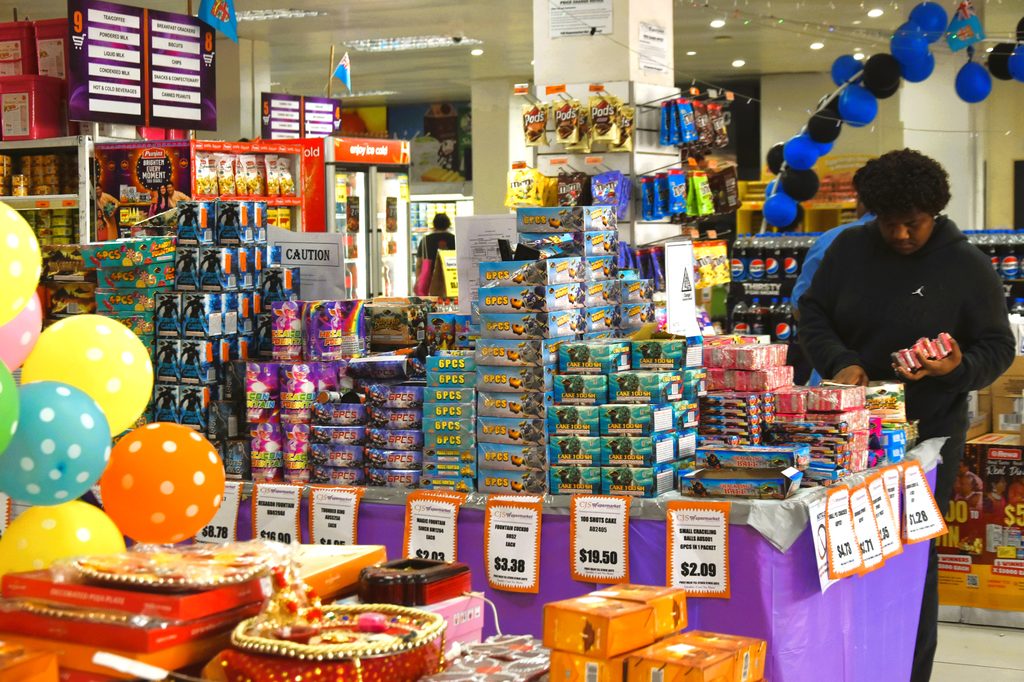Bula vinaka shoppers, while the government has intensified efforts to ensure households benefit from measures aimed at easing the cost-of-living, colleagues say nothing has changed and things keep increasing. Eggs, milk, chicken, fruits, sausages, fruits, sauces and butter have all gone up making it unaffordable for many.
This as the Deputy Prime Minister and Minister for Finance, Professor Biman Prasad says the 2025-26 National Budget delivers a direct boost to household incomes and living standards. But this is contrary to what shoppers on the ground are saying.
In an interview on the Lens@177, Biman said the Coalition Government’s third budget directs a total of $800 million to cushion the impact of any cost-of-living pressures.
These measures include minimum wages increasing to $5 in April, a 5 per cent increase in social welfare allowances, 10 per cent reduction in bus fares as farmers benefit from guaranteed subsidies for key crops. They believe that these changes are easing prices for groceries.
He insisted critics “ignore and lie about the cost-of-living pressure,” pointing to the Reserve Bank statistics showing seven months of negative inflation. Biman added that a task force made up of the Fijian Competition and Consumer Commission, FRCS and the Finance Ministry monitor prices to ensure benefits reach households.
He said two-and-a-half years of fiscal reforms, wage rises, and social spending now amount to “a success story for any government” in balancing economic recovery with relief for ordinary Fijians.
The taskforce monitors, chicken, fish, potatoes, garlic, onions, tea, cooking oil, and selected fruits and vegetables, all of which have attracted zero duty or reduced levies under this budget.
He feels Government policies are working effectively, as the task force ensures businesses pass down the reduced prices to consumers, to cope with daily expenses.
Colleague Waisale who shops with his wife says this was not true as the price of groceries has not changed. If anything it has all gone up, he says.
“Chicken price keeps going up all the time, even though the governmentclaims they would bring it down. He fought with a shopkeeper in his neighbourhood recently over the price of a small handy gas sold for $15 and has since complained to FCCC but nothing has been done. His family shops at R.B Patel during the weekend special. He said milk prices had gone up from $4 to $5 and the good thing was that there were a variety of products available that allowed shoppers to pichk from.
“My wife always says we are what we buy and we are what we eat. The cheaper the product the less the quality we are giving our family members,” he said.
Waisale said he did not feel any difference and in fact they were spending more. He only buys bananas because grapes and other fruits like oranges and pears kept fluctuating every week. Sports Editor Rohit said the price of everything had gone up. “I buy sausages every fortnight and it has gone up from around $8.95 to $16.95.
“The price of everything has all gone up from milk, chicken, grapes, strawberries and even fruits, unless there is something on sale.”
“I cope by sacrificing on “wants” so I refrain from buying things like strawberries even though my children love it,” he said.
The truth is that the cost of groceries is generally rising globally this year driven by factors like extreme weather, disease outbreaks, supply chain disruptions, and policy changes like tariffs.
Predictions suggest slower price increases than historically, but continued volatility, particularly for meat, vegetables, and coffee. According to research key drivers of price increases include: extreme weather and climate change as it damages crops and livestock globally.
Outbreaks of plant and animal diseases disrupt supply chains, leading to higher prices for affected products.
Imposition of import tariffs directly increase the cost of imported food items, with consumers ultimately bearing the cost. Changes in global trade affect the availability and price of certain commodities.
Beef and veal prices have been rising significantly due to shrinking supplies and continued consumer demand. International prices for vegetable oils and dairy have seen sharp increases, reaching a three-year high in July. Tariffs and weather conditions in coffee-growing countries are contributing to significant price increases for coffee.
Items like eggs and sugar are also experiencing year-over-year price changes around the world. Food prices are expected to continue their upward trend. Shoppers are likely to feel the ongoing pinch on their grocery bills, making it important to look for ways to save on food.
At the end of the day it is important to shop wisely and prioritise needs first!



